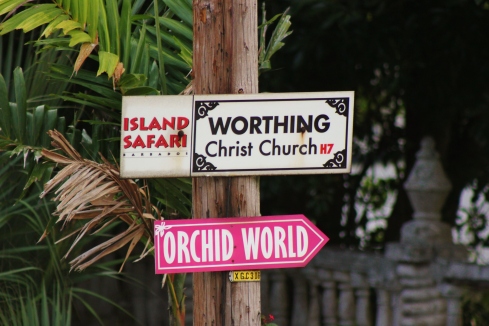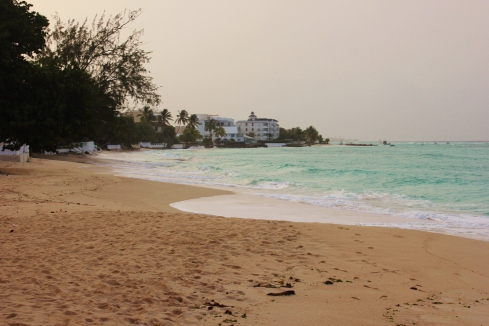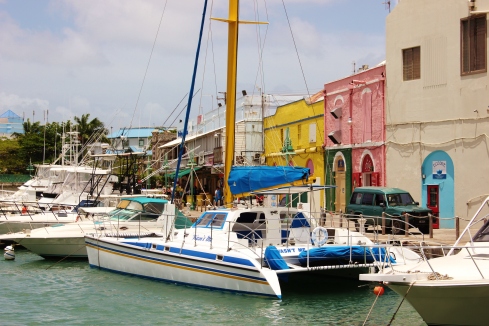Sun soaked; rum soaked; fringed by palms and golden beaches. Barbados is a Caribbean island that stirs up all the stereotypes one associates with this region. You picture pirates, rum runners and European explorers travelling around the coast and as you walk through Bridgetown you can almost hear calypso music in the streets. This is a romanticised image of the Caribbean, but one that I myself had as I moved through the island. But this image is critical to Barbados because it forms the foundation of the island’s soft power; the concept of global influence that has made it a modern Caribbean power.
The Caribbean is not a region short of cultural icons. Cuba is imbued with nostalgia and travelers flock to the island to indulge in one of the world’s last communist states. Castro’s image looms large over the nation and images of Cuba become more photogenic at every corner. Alternatively there is Jamaica, an island whose global image will forever be entwined with reggae, Bob Marley and Rastafarian culture. Jamaica, because of Cuba’s political isolation, had fallen into the role of a regional leader. It was a nation whose culture and soft power were unrivaled in the world, but within the last few years Barbados has risen high in the global conscience and arguably has replaced Jamaica as a modern soft power.
Soft power has allowed Barbados to achieve a dominance that neither military might or political influence could ever achieve. But identifying what is the root of the island’s soft power is complex.
One of the biggest contributing factors is music. For many music may be considered a trivial thing, but in the modern world it is one of the few cultural traditions that can reach all parts of the world and it can symbolise a nation’s global influence. Music has played a core part of Britain’s rise to become the world’s leading soft power nation; Adele, One Direction, Mumford & Sons and numerous others have helped to define the modern British state and within the Caribbean Jamaica’s dominance was largely down to the global influence of reggae music.
As Bob Marley came to define Jamaica in the 20th century, so Bajan musical figures have helped define Barbados in the 21st century. Cover Drive, Shontelle and most famously Rihanna have been catalysts for Barbados’s new-found cultural dominance. These artists have put Barbados on the map, acting as cultural ambassadors for the island. With Rihanna as its poster girl, Barbados has taken on the cultural prominence that Jamaica has developed with Bob Marley and reggae music. Her international success cemented Bajan culture in the minds of the global population and subsequent success by her contemporaries has confirmed the island’s cultural strength and pushed Barbados further in the soft power rankings. This has also helped it to success against its regional rivals; whereas Jamaica has relied on a cultural image iconic to generations past, Barbados is represented by figures enjoying success today.

(Above: Throughout Barbados there are constant reminders of the island’s link to Britain. Towns are often named after places in the UK, such as Worthing, which is on the British south coast.)
This cultural soft power, however, has also been backed up by the economic development and safety and security that the island enjoys. Unlike Jamaica, Barbados does not have connotations of violence and crime, and this has brought the tourists back to Barbados again and again. Tourists come to the island not simply seeking the Bajan culture that has been portrayed so widely across the globe, but also the security that this island can offer over many other nations within the Caribbean. Most importantly, however, is the way Barbados has generated an image of being a slice of the Caribbean to suit everybody. Its colonial links to the UK make it feel like familiar to the British and Europeans alike, whilst its modern culture has adopted much from the United States. This has resulted in a Barbados that is accessible and one in which any visitor, from any nation, can indulge in a form of Caribbean cosmopolitanism.

(Above: Barbados not only offers culture, but also a slice of the Caribbean ideal that all tourists here seek)
Whereas Jamaica and Cuba have such unique identities Barbados has attempted to push a new concept of the Caribbean; one of the cosmopolitan Caribbean and yet it has sought to retain Bajan traditions at the heart of life. With this concept making waves across the world, all of Barbados is aware that eyes are focusing on this island. With Rihanna and her contemporaries continuing to push on strength by strength it looks like Barbados will continue to grow economically, politically and as a soft power state. With music, history and the Bajan lifestyle at its core Barbados has risen and will continue to rise to become a true Caribbean power.




